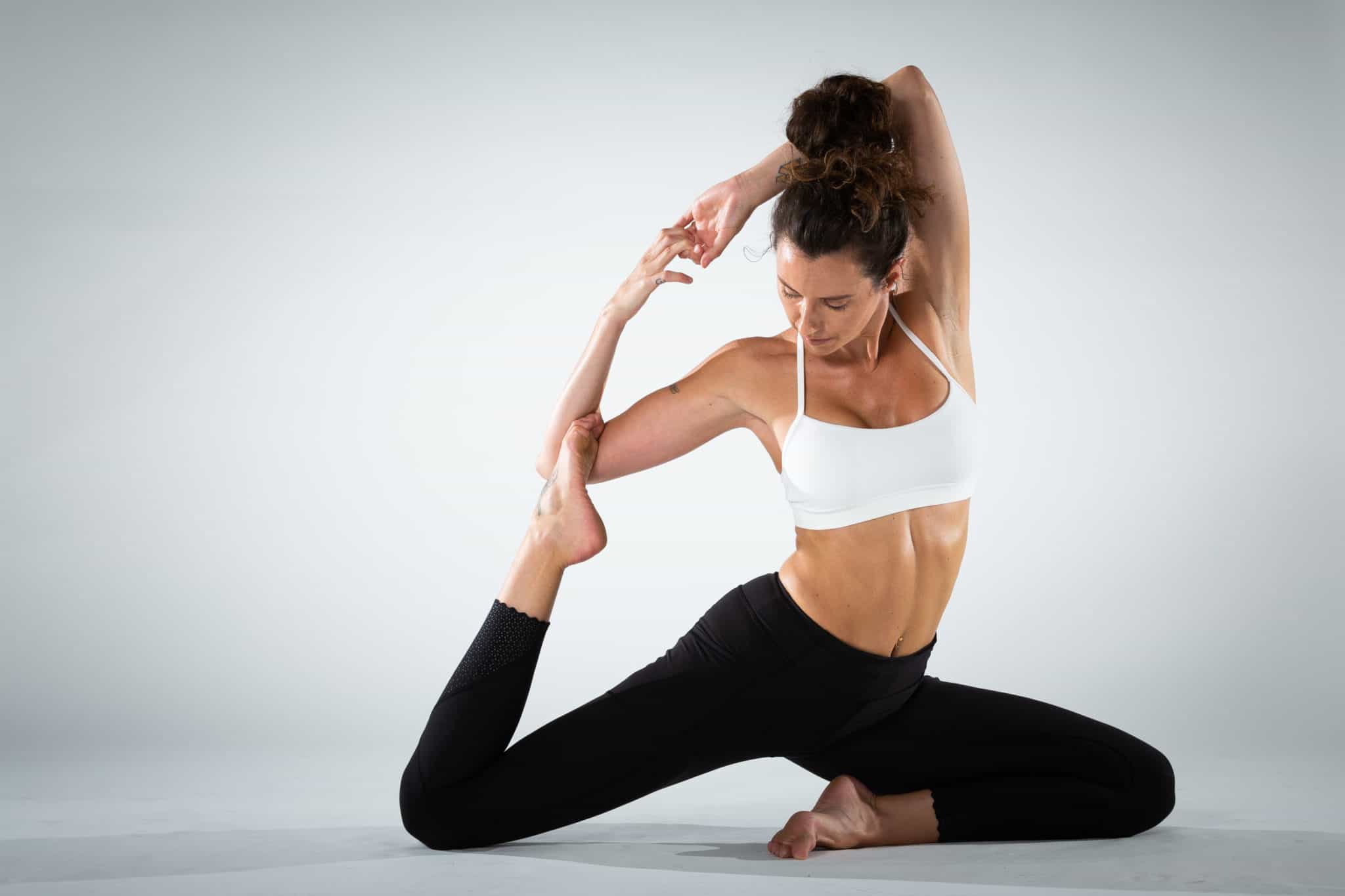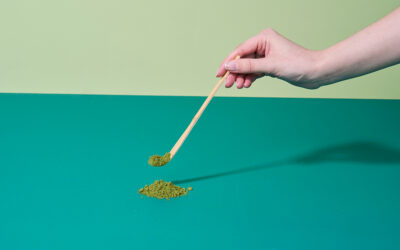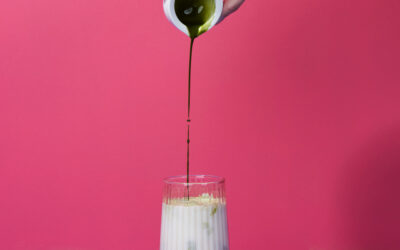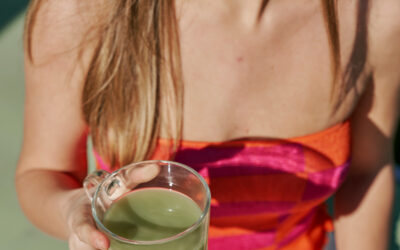It’s a well-known fact that yoga has a myriad of health benefits, ranging from physical strength and flexibility to mental and spiritual awakening. Matcha, on the other hand, has been used for centuries by Zen Buddhist Monks in Japan for meditative practices and tea ceremonies. It contains incredible properties such as EGCG and L-theanine (which will be discussed later) that have incredible benefits for the brain and mind. We might even go so far to say that it’s the superfood of the decade!
Both matcha and yoga have positive effects on mood
It’s not common for anyone to walk out of a yoga class feeling worse off than they did when they entered and this is most likely due to the calming and anxiety-lowering effects that yoga has on the brain. It’s been demonstrated that yoga increases GABA levels in the brain which are associated with improved mood and decreased anxiety when compared to outside-walking (1) . Likewise, matcha contains a special compound called L-theanine which has been demonstrated to reduce the elevated blood pressure that would usually be caused by stressful events as well as reducing heart rate and perceived anxiety (2)!
Matcha and yoga both leave you feeling energetic but calm at the same time
In addition to L-theanine, matcha naturally contains caffeine. The combination of L-theanine and caffeine, together, has been shown to increase alertness and reducing tiredness as well as fight mental fatigue and headaches (2)! This means you are able to get a natural source of energy without the jitters and crash afterwards that coffee drinkers might experience. Similarly, yoga and some of the poses incorporated in yoga has been said to improve vagal tone and thus increasing energy and self-esteem (3). Since yoga is both a physical and mental practice that combines a succession of slow isotonic contractions and isometric contraction with a mindful focus on breath, it leaves you feeling both strong and calm.
Yoga and matcha are practices that have been done for centuries
Matcha was first consumed as a powdered tea in the 12th century by Zen Buddhists in Japan, mainly for traditional tea ceremonies. The Japanese culture holds this ritual to very high regard the tea ceremony is carried out using on the top ceremonial grade matcha and is strictly to be had as a tea (matcha + water). Today, matcha is still used for tea ceremonies but the premium and culinary grade matcha varieties can be seen and used in a wide range of matcha lattes, cakes, desserts, and ice creams.
Although there is no consensus as to when yoga definitively originated, it can be agreed upon that it’s origins were BCE (there are different types of yoga practices that may have started at different times). It came to the attention of western society in the mid 19th century and has grown to be an extremely popular practice since- making its way into a plethora of people’s daily rituals.
We love the marriage of matcha and yoga for both mental and physical health- this is why we love having Matcha Maiden available at KAYA Health Clubs at their Espresso Bar. It is the perfect way to start, finish or just supplement your Yoga Classes in Melbourne.
References
- Streeter. C.C., Whitfield. T.H., Owen. L., Rein. T., Karry. S.K., Yakhking. A., Perlmutter. R., Prescot., Renshaw. P.F., Ciraulo. D.A., Jensen. J.E. (2010). Effects of Yoga Versus walking on mood, anxiety, brain GABA levels: a randomised controlled MRS study. Journal of Alternative and Complementary Medicine. 16(11). Doi: 10.1089/acm.2010.0007
- Mancini. E., Beglinger. C., Drewe. J., Zanchi. D., Lang. U.E., Borgwardt. S. (2017). Green tea effects on cognition, mood and human brain function: a systematic review. Phytomedicine 34. Doi: http://dx.doi.org/10.1016/j.phymed.2017.07.008.
- Zavala. A.G., Lantos. D., Bowden. D. (2017). Yoga poses increase subjective energy and state self-esteem in comparison to ‘power poses’. Frontiers in Psychology. 9. Doi: 10.3389/fpsyg.2018.00149





